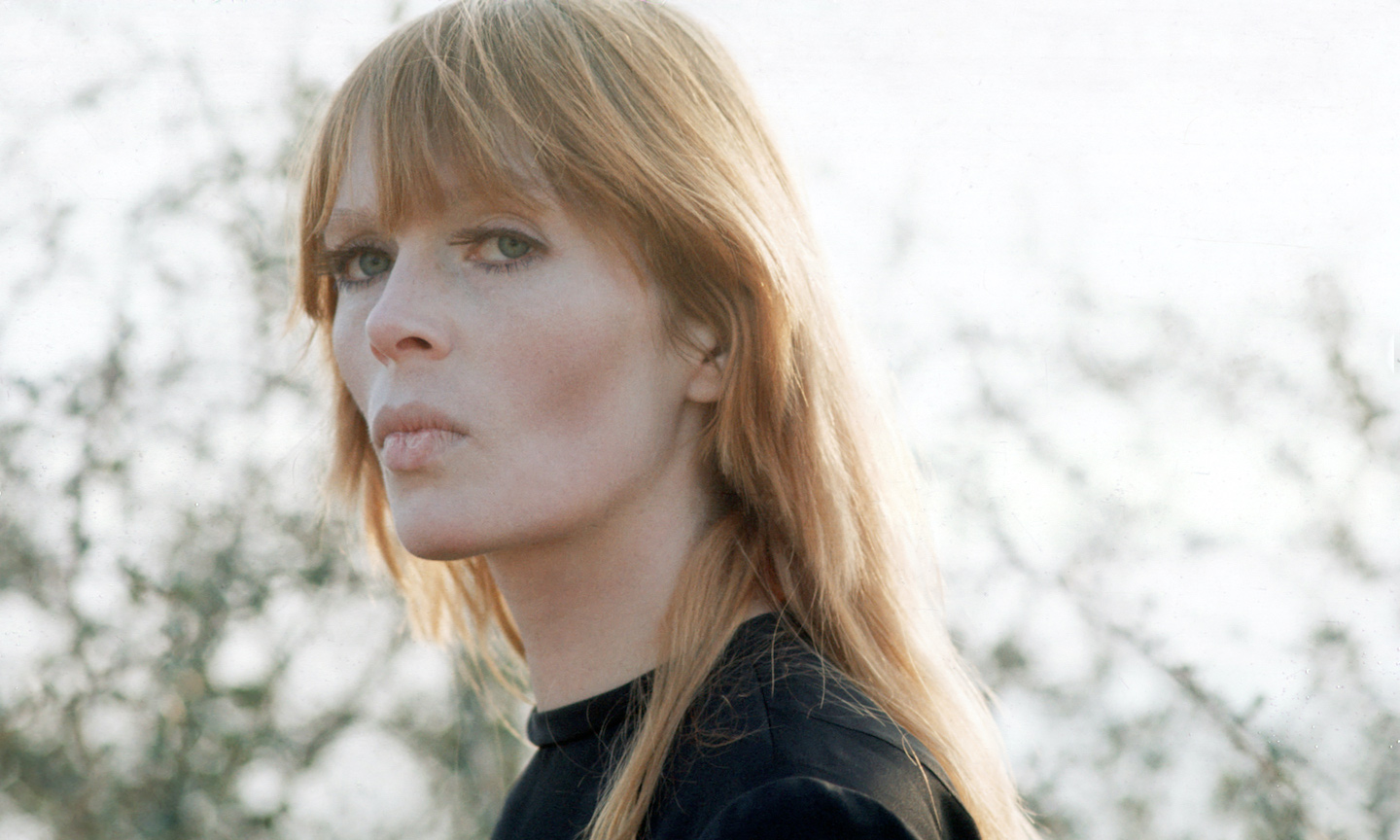Who could make Lou Reed seem like Brian Wilson, turn the pump organ into a rock instrument, and bring The Doors’ darkest visions to an even more apocalyptic place? Nobody but Nico. Born Christa Paffgen in Cologne, Germany, she was a film actor, recording artist, and successful model before she ever emigrated to the US and came into the orbit of Andy Warhol. He masterminded the short-lived but legendary partnership between Nico and his avant-rock charges The Velvet Underground, but she went on to an uncompromising solo career that broke even more rules than the VU’s convention-shattering dispatches from beyond rock’s outer limits.
With her androgynous vocal style and her scorched-earth policy towards traditional song structure, Nico was “No Wave” years before the term was coined. A whole slew of subversive subgenres including post-punk and goth are indebted to her. From the autumnal baroque-pop of her 1967 solo debut, Chelsea Girl, to the artful abstraction of the John Cale-produced The Marble Index and beyond, Nico hammered out a haunting, hypnotic string of cult classics. But her career was cut tragically short when a 1988 accident brought her troubled life to an untimely conclusion.
It’s challenging to pinpoint the ideal entry point into the Nico catalog, a body of work as complex as it is commanding. Instead of narrowing it down to a single spot, here are 20 of the best Nico songs that traverse the entire spectrum of the German iconoclast’s unflagging assault on artistic complacency.
Listen to the best Nico songs on Apple Music and Spotify.
The Velvet Underground
(Femme Fatale, I’ll Be Your Mirror, All Tomorrow’s Parties)
When Warhol foisted Nico on The Velvet Underground as their chanteuse-in-residence, the band initially bristled. But it’s impossible to argue with the recorded results, which are limited to the group’s timeless debut, The Velvet Underground & Nico. As reluctant as Lou Reed had been to cede lead vocal duties to Nico on the three tracks she steers, time has proven she was the perfect fit. With a delivery suggesting she suffers no fools, the husky-toned singer seems to personify the intimidating character she describes in “Femme Fatale.” If “I’ll Be Your Mirror had been sung in Reed’s comparatively youthful-sounding tones at the time, the dewy ballad might have had considerably less gravitas than it’s given by Nico’s cello-pitched pipes. And the gloriously doomy decadence of “All Tomorrow’s Parties” still feels inseparable from her cool Teutonic croon.
Cover Songs
(These Days, I’ll Keep It With Mine, The End)
Nico’s first album was almost entirely written by others, including her VU bandmates. It also included “These Days,” by one of her many suitors and occasional accompanist Jackson Browne, still in his teens at the time. He wouldn’t record it himself until years later, but in 1967 its world-weariness was surely better suited to Nico, 10 years his senior and far more experienced. She also had early dibs on former paramour Bob Dylan’s “I’ll Keep It With Mine.” Though first cut by Judy Collins, the compassion-baked ballad is said to have been written for and about Nico, and she inhabits it with an intimacy that makes a strong case for that origin story.
After Chelsea Girl, Nico focused on her own material, but her real tour de force in cover tune territory came in 1974 with her version of The Doors’ “The End” from her album of the same name. With VU bandmate John Cale doing unspeakable things to a piano and Roxy Music’s Phil Manzanera serving up some sinister licks, Nico picks up where Jim Morrison (yet another former flame) left off, kicking up the fire-and-brimstone factor several notches and establishing a template that Nick Cave, and others, would one day embrace.
Harmonium-Fueled Hits
(Janitor of Lunacy, It Has Not Taken Long, Konig)
Nothing as conventional as guitar or piano for Nico – instead she spun most of her songs behind a harmonium. The 19th-century creation is essentially a portable pump organ, with a bewitching, serpentine sound. It comes to the fore on some of Nico’s most haunting tunes. “Janitor of Lunacy” from 1970’s Desertshore is a prayer for sanctuary from an absurd fate, reportedly recorded in response to the recent death of Nico’s friend Brian Jones of The Rolling Stones. With its roiling, incantatory feel, it became one of her signature songs.
Meanwhile, the captivating “It Has Not Taken Long” from The End runs on a repetitive harmonium riff atop what sounds like a cross between a beating heart and a skipping record. Sung in Nico’s native tongue, the voice-and-harmonium solo “Konig” (German for “king”) from 1985’s Camera Obscura contrasts drastically with John Cale’s electronic-oriented production on most of the album, showing the hoary old instrument still had a place in the singer’s heart.
New Wave Nico
(Genghis Khan, One More Chance, Win a Few, Fearfully in Danger)
When Nico embraced a New Wave-tinged sound in the 80s it was more a case of the zeitgeist finally catching up with the “alternative” pioneer than the reverse. On 1981’s Drama of Exile, the post-punk guitar and almost danceable groove of “Genghis Khan” and the Bowie-in-Berlin vibe of “One More Chance” eased the now even deeper-voiced singer into the ears of a new generation. When John Cale reclaimed the producer’s chair for the aforementioned Camera Obscura, Nico’s gloomy gravitas was offset by a foreshadowing of 90s electronica on “Win a Few” and a minimal, but insistent, synth-pop framework for “Fearfully in Danger.”
Otherworldly Explorations
(Lawns of Dawn, Evening of Light, We’ve Got the Gold)
John Cale was seemingly born to produce Nico. Her radical works plunged the dagger into your psyche and his arrangements gave the blade just the right twist. Along the way, they forged deliciously nightmarish visions on some of her finest albums. On 1968’s The Marble Index, “Lawns of Dawn” feels like being trapped inside a carnivalesque music box, while “Evening of Light” starts out simple and serene and gradually builds to a cataclysmic uproar. On The End…, “We’ve Got the Gold” starts out sounding like an entire band detuning at once and only gets eerier from there.
Poignant Performances
(My Only Child, Afraid, My Funny Valentine, The Fairest of the Seasons)
Conversely, Cale was also capable of bringing out the unabashed beauty in Nico’s music. On Desertshore, her voice joins the harmony singers with a striking tenderness in the nearly a cappella “My Only Child,” apparently inspired by her young son, Ari, whose voice appears on the following track and whose image adorns the album cover. The piano-led drawing-room ballad “Afraid” from the same album, also bears enough delicate poignancy to bring a tear to the eye.
Nico’s most conventionally “pretty” performance pops up surprisingly amid the electronic adventures of Camera Obscura when she comes off like a countercultural Marlene Dietrich on a quiet, cabaret-ready version of Rodgers & Hart’s “My Funny Valentine.” But the potential was there from the beginning, when her debut LP kicked off with the previously unrecorded Jackson Browne tune “The Fairest of the Seasons,” a bittersweet ballad that could be read in retrospect as portending Nico and Browne’s love affair.
Did we miss one of the best Nico songs? Let us know in the comments section below.




